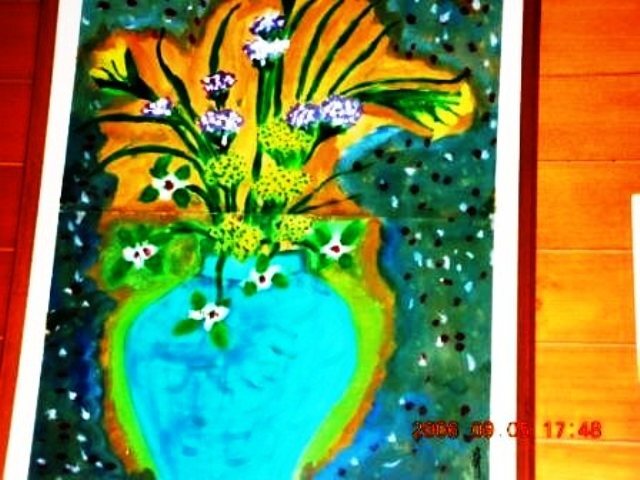* シラーのよく知られたバラードに「イービクスの鶴」がある。
*** ))) *
空に舞う イービクスの鶴は、静寂の海を 渡り、風を纏う
その羽ばたきは、神秘の力を秘めて 舞う
白き姿は、夜空に映え、星々の間を縫い 舞い上がる。
悠久の時を生きる イービクスの鶴、その美しさ
高く、そして遠く、理想の世界を求め 飛び続け
だが その旅路は、誰も知らず、ただ、その影が 月に映る
イービクスの鶴よ、教えてくれ、汝が見た世界を
想像もつかぬ その翼の下に 広がる景色
汝が運ぶのは、希望か、それとも 夢?
イービクスの鶴よ、永遠に、その美しい舞を 見せてくれ ⑴-
*** ))) * ⑵-
空に舞ふ イービクスの鶴:その姿は、静けさの中で 光り輝き
風に乗り、雲を超ゑ、遥かな旅を続ける
汝れは 知恵と力の象徴、物語に 語り継がれ
その翼は、希望を運び、夢を与える
イービクスの鶴よ、高く飛べ、そして 未来へメッセージを
その美しい舞は、勇気を与ゑる
汝れが見た世界は、想像を超ゑ
イービクスの鶴よ、その翼で、新たな物語を・・ ⑵--
** -- * ⑶--
空の旅人 イービクスの鶴の翼は、太陽をも超ゑ
目は、星々の輝きを映し、心は、宇宙の調和を知る
汝は自由の精神を 果てしなき 空の彼方へ導く
イービクスの鶴よ、汝れは 果てしなき探求者、
真実の探究者、そして 永遠の夢見人・・
汝が舞は、詩のように流麗、その声は、音楽のように澄み渡り
イービクスの鶴よ、汝れは 美しき使者、平和と調和の象徴
汝れは、未知なる世界への架け橋、その翼の下に、 新たな希望が生まれ・・ イービクスの鶴よ、飛べ、
汝が旅は、夢とともに・・ ⑶-
** * -- ⑷--
広大な宙を舞ふ イービクスの鶴
汝れは、光の帯を切り裂き、その軌跡は、天の川を照らす
汝れは知恵の守護者、力の伝承者、遥かなる神話から飛び立ち、
汝が翼は、未来への架け橋となる
イービクスの鶴よ、高く、遠く、希望の光を この地に!..
汝が舞ひは、世界の終わりまで 響き渡り、新たな夜明け
イービクスの鶴よ、汝が翼で、永遠の物語を!...
汝が声は、遠つ国と昔を 呼び覚ます
イービクスの鶴は 優雅なる使者、平和と知識の伝播者
汝れは、現実の境界を越え、翼下に、希望の種が芽生ゑ
イービクスの鶴よ、汝れの旅は 夢とともに・・ ⑷--
*** ))) **
**フリードリヒ・シラーと「イービクスの鶴」: シラーは、ドイツ古典主義を代表する詩人で劇作家。彼の作品は、理想主義、英雄主義、そして自由を求める不屈の精神をテーマにし、その中には「イービクスの鶴」というバラードも含まれる。 --- この作品は、シラーの詩の中でも特に印象的なものの一つで、精緻さと優美さを象徴>>>
*「イービクスの鶴」は、古代ギリシャの詩人イービクスが、不正を働いた者たちに対する神々の裁きを描いた物語で、イービクスが殺害された後、彼の魂は鶴となって現れ、不正を働いた者たちを天罰である雷によって打ち倒す。---
この物語は、正義と報復、そして超自然的な力が介入することで悪が罰せられるというテーマを扱っている。。。
シラーの作品は、彼の死後200年以上経った今でも、感動を与え、文学だけでなく、音楽や舞台など、さまざまな形で表現されてきた。ベートーヴェンの「第九」の原詞としても知られる「歓喜の歌」は、シラーの「歓喜に寄す」が元になっており、いかに多大な影響を与えているかを示している。>>>
**The Tale of Ibycus and the Cranes: A Symbol of Divine Justice
The ancient tale of Ibycus and the cranes is a fascinating story that has captured the imagination of many through the ages.
Ibycus, a renowned lyric poet from the 6th century BC, met a tragic fate at the hands of robbers near Corinth. --As he lay dying, a flock of cranes flying overhead became the unwitting witnesses to his demise. - In a desperate plea for justice, Ibycus called upon these birds to avenge his death.
The story takes a remarkable turn when the cranes play a pivotal role in unveiling the crime. -The robbers, having arrived at a theater in Corinth, saw a group of cranes overhead. - One of the robbers, struck by a guilty conscience, exclaimed about the cranes as avengers of Ibycus, leading to the unraveling of the crime. - This incident gave rise to the Greek proverb "the cranes of Ibycus," signifying the divine revelation of hidden crimes.
Ibycus's life was one of travel and artistic pursuit, often residing in the courts of influential patrons like Polycrates of Samos. -- Despite his social stature, he chose a life akin to that of a wandering minstrel, which was not uncommon for poets of his time. -- His works, primarily lyrical, celebrated the beauty of youths and maidens, and he was particularly renowned for his poems on love and affection.
The tale of Ibycus and the cranes has transcended its historical roots to become a symbol of poetic justice. -- It serves as a reminder that no deed, however secret, escapes the eyes of the gods, and that justice, though sometimes delayed, is inevitable. -- The story also highlights the role of nature as an agent of divine will, a theme prevalent in many ancient myths and stories.
Ibycus's poetry, much like the story of the cranes, continues to be a testament to the enduring power of words and the belief in a higher moral order. --His legacy lives on, not only in the annals of classical literature but also in the collective consciousness of those who seek justice and truth in the world's many narratives.--- For those interested in exploring the lyrical beauty of Ibycus's work, translations and scholarly discussions are available, offering insights into the poet's contributions to the rich tapestry of Greek literature. -- The tale of the cranes, with its blend of poetic elegance and moral conviction, remains a compelling narrative that resonates with contemporary audiences, reminding us of the timeless nature of art and its capacity to convey profound truths across the ages.
** The Literary Elements of "The Cranes of Ibycus"
"The Cranes of Ibycus" is a narrative that weaves together various literary elements to create a poignant and enduring story. --One of the most prominent elements is the use of symbolism. -- The cranes in the story are not merely birds; they symbolize divine justice and the idea that no crime goes unpunished. This use of symbolism is a powerful tool in literature, as it allows for a deeper meaning to be conveyed beyond the literal events of the narrative.
Another key element is the theme of poetic justice, which is central to the story. The concept that the universe will ultimately right wrongs and punish evil deeds is a common theme in literature and resonates strongly in this tale. --It reflects the ancient Greek belief in the gods' active role in human affairs and their willingness to intervene to maintain moral order.
The story also employs irony, particularly through the unexpected turn of events leading to the robbers' confession. --The very cranes that were called upon as witnesses to Ibycus's murder become the instruments of justice, leading to the robbers' downfall. --This twist in the story highlights the unpredictability of fate and the gods' mysterious ways.---
















